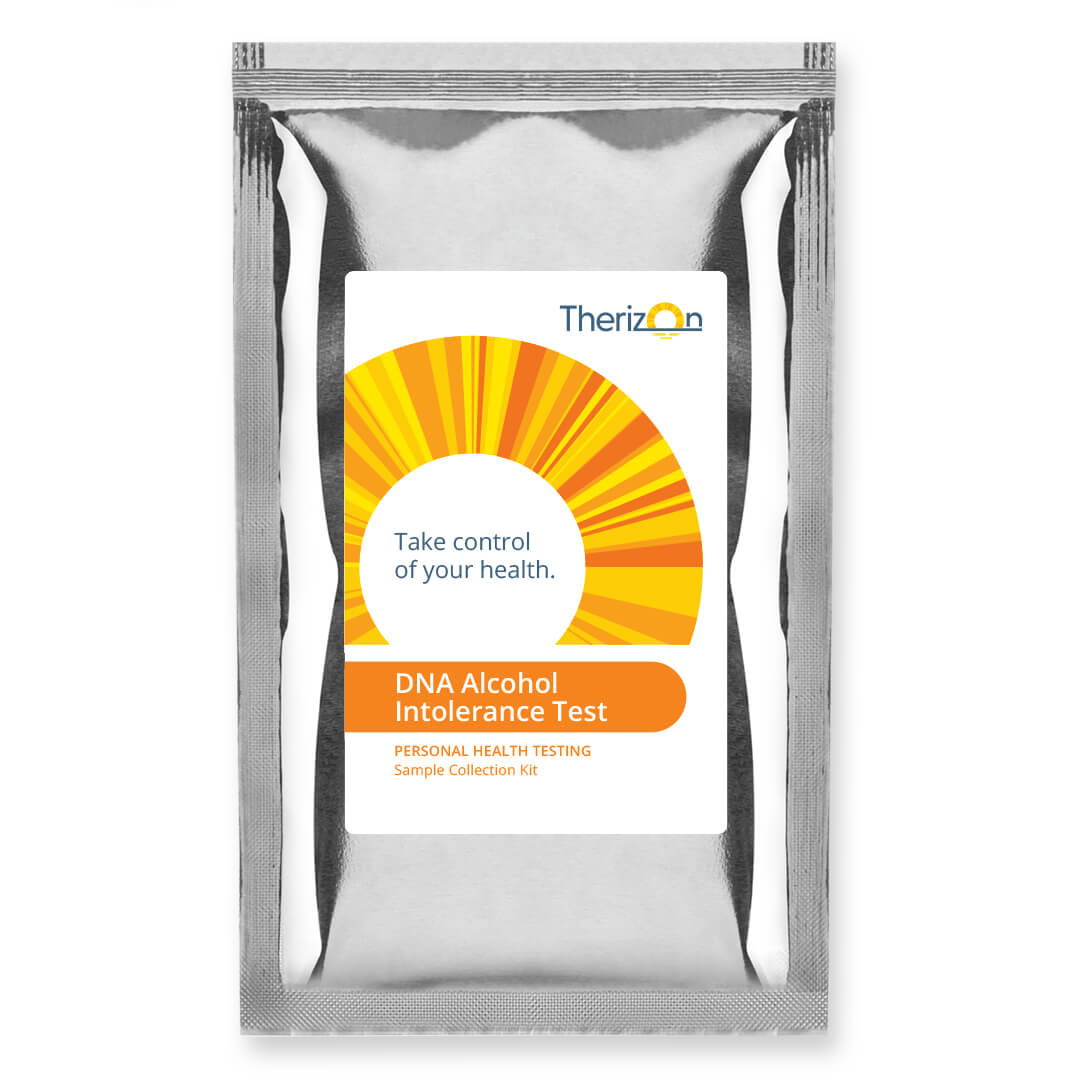Alcohol Intolerance DNA Test
Find out whether drinking alcohol is harming your health with this DNA test.
- Determine how well you can metabolize alcohol
- Find out if alcohol is harming your health
- Painless buccal (mouth) swab sample collection
- All tests are run 2x for absolute accuracy
- Quickly collect samples in the privacy of your own home
- 24/7 online test status check
- No age limit
- State-of-the-art accredited testing laboratory
$149.00
Detailed Description
Are you at risk of alcohol intolerance?
Does just one alcoholic drink cause your face to go bright red?
Or result in nausea, insomnia and a severe hangover?
These are all signs that you have alcohol intolerance, and every drink you consume may be affecting your health. Find out whether you inherited DNA changes that affect your ability to metabolize alcohol and increase your risk of serious health complications with alcohol consumption.
Every alcoholic drink could be harming your health if you are genetically susceptible:
- Immediate reactions: facial flushing, nausea, dizziness, headaches, increased heart rate, insomnia, severe hangovers
- Increased risk of esophageal cancer: 10X increased risk for moderate drinkers and up to a 90X increased risk for heavy drinkers
- Cardiovascular problems
- Memory loss
- Mental confusion
- Psychological issues
A simple mouth swab is all we need to identify DNA changes that affect your ability to metabolize alcohol and increase your risk of serious health complications.
The Genetics
Genes affecting alcohol metabolism
Individuals with genetic variants in the ADH1B, ADH1C and ALDH2 genes either produce acetaldehyde too quickly or are unable to eliminate it quickly enough. This results in alcohol intolerance characterized by a dangerous buildup of toxic acetaldehyde in the body after consumption of just moderate amounts of alcohol.

The chemical name for the alcohol we consume is ethanol. Several processes can metabolize ethanol, but two enzymes break down the majority in a two-step process. Alcohol dehydrogenase (ADH) converts ethanol to acetaldehyde in the first step of alcohol metabolism (predominantly in the liver). Acetaldehyde is a toxic chemical, but is usually only short-lived, as it is quickly converted to acetate by aldehyde dehydrogenase (ALDH) in the second step of alcohol metabolism. Acetate is easily broken down to carbon dioxide and water.
- ADH1B and ADH1C encode two members of the ADH family – the enzyme responsible for the conversion of ethanol to acetaldehyde (first step of alcohol metabolism). Genetic variants that increase ADH activity result in rapid build up of acetaldehyde.
- ALDH2 encodes a member of the ALDH family – the enzyme responsible for the conversion of acetaldehyde to acetate (second step of alcohol metabolism). A common variation in this gene decreases ALDH activity, slowing the removal of the toxic acetaldehyde.
Individuals that inherit two different variants (or alleles) of a particular gene are known as heterozygotes for that particular gene. The variants of the ADH1B, ADH1C and ALDH2 genes have a cumulative affect. For example, an individual with two slow ALDH2 alleles has zero detectable ALDH enzyme activity and will suffer from more severe side effects, compared to an individual that has one slow ALDH2 allele and one fast ALDH2 allele (ALDH2 heterozygote). ALDH2 heterozygotes have 30-50% of the ALDH activity compared to individuals that have two fast ALDH2 alleles.
Heterozygotes may be at increased risk of alcohol intolerance and alcohol-related health complications, as their side effects are often just viewed as irritating or embarrassing (e.g. a mild alcohol flush), but not enough to prevent them from drinking alcohol. Several recent studies of Asian populations have shown that ALDH2 heterozygotes often still consume large amounts of alcohol, and some even take antihistamines to reduce the flush symptoms. Unfortunately this continued alcohol consumption considerably increases their risk of health issues – e.g. an approximately 10-fold increased risk of esophageal cancer for moderate drinkers and up to a 90-fold increased risk for heavy drinkers.
How it works
Step 1: Order test kit online
Step 2: Collect DNA sample using a painless mouth swab, and mail to the lab in the provided return envelope
Step 3: Receive your results online
